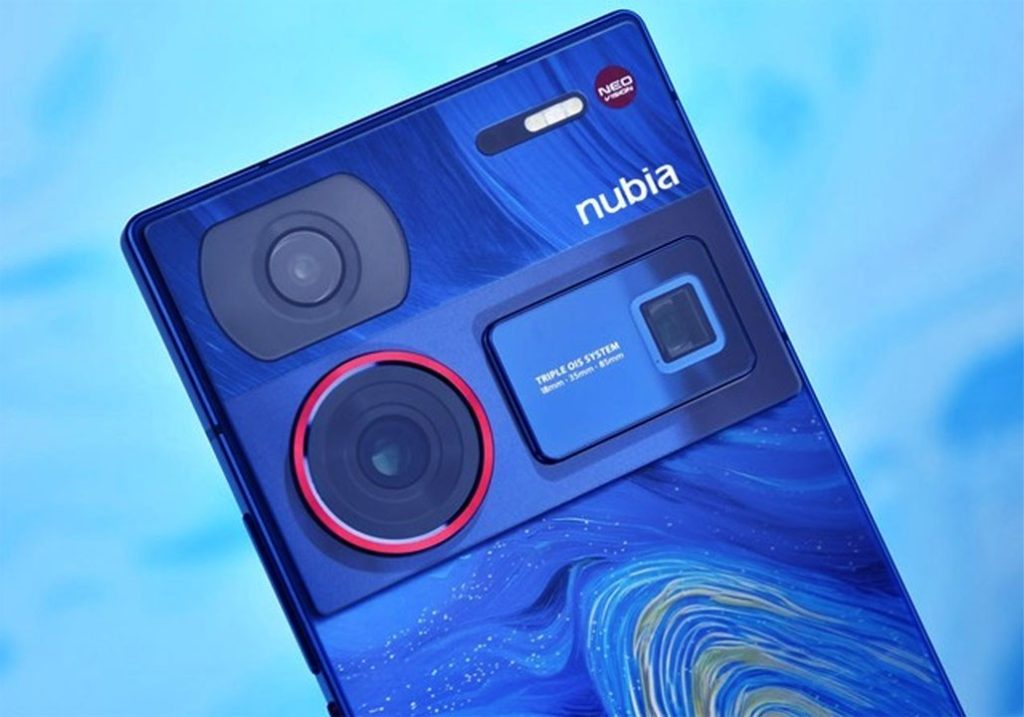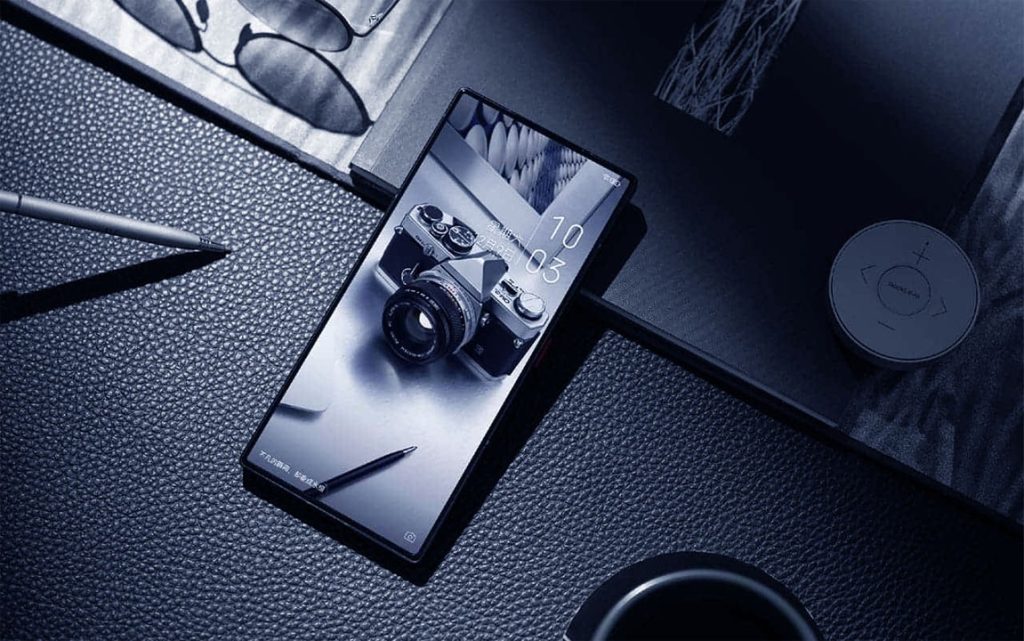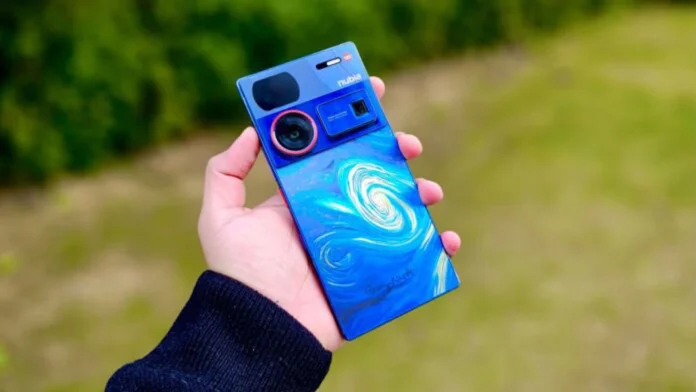The Nubia Z60 Ultra will attract attention, albeit not necessarily for the best reasons. Nubia Z60 Ultra offers excellent performance, long battery life, and an impressively balanced camera system at a reasonable price. It’s a phone from a lesser-known brand with an aggressively blocky design.
Some might enjoy it. Most likely not, but it’s something different. The Nubia Z60 Ultra also offers a lot of technology for its price, including a superb triple-back camera setup and a speedy processor. It also offers a reasonably competitive price. The Nubia Z60 Ultra starts at £749 for a variant with 12GB RAM and 256GB storage, while the 16GB RAM and 512GB storage version costs £899. That increase isn’t worth £150, so I’d stick with the basic Z60 Ultra, which is what I used.
NUBIA Z60 ULTRA KEY FEATURES
While the Nubia Z60 Ultra is far from perfect, it does provide some standout features for its price. Nubia’s blocky design language is a tad disorganized, and the phone is quite heavy, with a cumbersome mappable slider switch. Big, silky, and blissfully unaffected by a notch. It’s not the sharpest or brightest display, but it’s still reliable. Using the Snapdragon 8 Gen 3, performance is unrivaled, and it can support extended gaming sessions with minimal drop-off. With three good OIS-assisted cameras, including a decent main sensor and a dedicated 3.3x periscope camera, the Z60 Ultra is well-equipped for the money. Nubia’s unique UI is clunky yet largely free of bloatware. With a massive 6,000mAh battery, the Z60 Ultra can potentially last two days between charges, albeit the lack of wireless charging is disappointing.
Pros
- Outstanding battery life
- Top notch performance
- Impressively rounded camera system for the money
Cons
- Heavy and ugly
- Terrible selfie camera
- Unappealing UI
NUBIA Z60 ULTRA UNBOXING
The Nubia Z60 Ultra comes in standard-sized dark cardboard packaging with some red accents for a pop of color. The theme continues on the interior with a red USB-C cable with black connectors and a black charger with, you guessed it, a red USB-C port.

A clear plastic snap-on back cover is also included, which provides some shielding for the extreme corners. It won’t save the Ultra in most falls, but it does provide some protection without detracting from its appearance.
CAMERA
- Zero-fat triple camera array with excellent 3x periscope zoom.
- slightly unrefined processing
- Poor selfie camera because of the under-screen design.
The Nubia Z60 Ultra boasts three back cameras, which I consider to be a near-ideal configuration. There are three cameras: a 50MP standard, a 64MP 3.3x periscope lens, and a 50MP ultra-wide.
Nubia hasn’t included any junk cameras to increase the lens count, and the zoom range is impressive for a phone that starts well under £1000. When you pull out your camera, it feels like you have a plethora of compositional options at your disposal. The slider on the side launches the camera app for quick-fire shooting. All three cameras provide high-quality images, and the Nubia Z60 Ultra employs a combination of Omnivision and Sony sensors.

Even when utilizing the ultra-wide, pictures hold up nicely at night, and the Auto HDR feature typically avoids overexposure in trickier circumstances. The main camera also features an unusually “zoomed in” focal length for a phone, which was a delightful departure from the norm.
However, I don’t believe the Nubia Z60 Ultra will compete with the Samsung Galaxy S24 Ultra or Google Pixel 8 Pro.
Up close, the processing appears fake, and the shot-to-shot pace isn’t very impressive. You have to wait about a second between shots, giving the impression that the Nubia Z60 Ultra takes a linear approach to processing, completing one image before allowing you to press the shutter button another.
Looking through the few hundred images I shot with the Nubia, I noticed a few more unfavorable characteristics. Images can appear oversharpened, colors can run hot, and the Z60 Ultra prefers a bright and punchy image, which can sometimes result in slight oversaturation or unnatural-looking skies. The main camera also has purple fringing, which can be extremely noticeable in some scenarios.
Which of these little issues you notice, if any, depends on the scene. However, some of the peculiarities can be fixed with a fast edit. My main lesson is that a good zoom, a high-quality ultra-wide, and software/hardware capable of handling nighttime conditions make for a fun time, despite a few image quality issues.
DESIGN AND SCREEN
- A little complex pro-camera aesthetic.
- Mappable shortcut slider
- 6.8 inch AMOLED
- Resolution: 2480 x 1116, frame rate: 120Hz
Nubia has gone big and dramatic with the Z60 Ultra’s design. This is a large beast of a phone, with a look that could be described as ‘industrial’ if you were polite. It’s extremely heavy, even when compared to other larger flagships. It weighs 246g, making it closer to the Galaxy Z Fold 5 (253g) than the Galaxy S24 Ultra (232g).
The phone’s 8.8mm thick, blocky, flat-edged design plainly shares DNA with Nubia’s Red Magic gaming phone sub-brand. That’s acceptable on a phone designed for cooling and a comfortable portable gaming experience, but it feels less justified here.
Even the actual sliding switch from the Red Magic 9 Pro makes the transfer, now serving as a mappable context-sensitive shortcut button. It’s convenient to have on hand, but I’m not a fan of the switch’s binary nature, which simply flips to the opposite state when turned. Similar switches from Apple and OnePlus will assign sound profile functions to certain positions.

Aside from weight, I believe the rear of the phone will be the most controversial issue here. Beauty may be in the perspective of the beholder, but in my opinion, the Z60 Ultra’s camera module is simply ugly.
The entire triple array is mounted on a square slab that is slightly raised above the body of the phone. Only the ultra-wide camera is flush with this piece, whereas the circular wide camera gains additional height and a red ring. The periscope camera receives its own rectangular slab of a module. It’s all a bit of a mess.
With the camera module’s ‘Neo Vision’ red dot branding and black or silver finishes, Nubia appears to be attempting to replicate Leica’s pro camera style. It does not quite work. The front of the Z60 Ultra is far more understated. Nubia has taken a similar all-screen approach to the Red Magic 9 Pro, with thin bezels and a somewhat larger chin. Despite the affordable pricing point, Nubia has added IP68-certified dust and water ingress protection. Even at this price, it’s not guaranteed.
Nubia appears to have brought its 6.8-inch AMOLED panel over from the Red Magic 9 Pro. It’s another 2480 x 1116 resolution, 120Hz screen with a claimed peak brightness of 1,500nits.
That falls far short of some of the 2024 flagships (the Galaxy S24 range, for example, reaches 2,600nits), but it is still plenty bright enough for everyday use. Meanwhile, PWM dimming at 2160Hz is difficult to evaluate but intended to be more comfortable on the eyes.
The lack of a front camera notch is consistent with the brand’s Red Magic phones. Nubia is one of the handful that prefers an under-display approach, resulting in beautifully uninterrupted landscape video and gaming content at the sacrifice of even halfway good selfies (more on that later).
Nubia, like the previously stated Red Magic 9 Pro, has used BOE’s Q9+ luminescent material to provide a more vibrant color output. Sure enough, the color output is lovely and natural, at least in Normal mode. Nubia also provides a reasonably versatile technique for adjusting the tone to your preference.
HOW’S THE PERFORMANCE?
- Top of the line. Snapdragon 8 Generation 3 chipset
- 8GB, 12GB, or 16GB of RAM (depending on the market).
- Strong sustained gaming performance.
While some phones at this price point compromise on power, the Nubia Z60 Ultra does not. It pairs the latest and finest Snapdragon 8 Gen 3 CPU with either 12 or 16GB of RAM (at least on the UK Nubia shop).
This is a spec that can compete with the Samsung Galaxy S24 Ultra, which costs roughly twice as much. The Geekbench 6 benchmark ratings are undoubtedly competitive with such a high performer.
GPU benchmarks are similarly near the top, indicating the phone’s top-tier gaming capability. Games like Genshin Impact and Wreckfest will run at a super-smooth 60fps with the graphics turned up to the highest, but this was also true for last year’s top phones.
The Z60 Ultra ran significantly hot during the 20-minute Solar Bay Stress Test since it lacked the actual fan seen on the Red Magic 9 Pro. However, that is a special benchmark designed to make even the most capable phones puff and pant.
More crucially, the Nubia Z60 Ultra passed the test, which involves 20-minute strenuous GPU workouts that simulate the impacts of prolonged high-end gaming. A smartphone will often provide fast performance for the first few minutes before slowing down when things heat up.
A 92.7% score indicates that the phone’s cooling system is in good working order, matching the formidable Asus ROG Phone 8 gaming phone for consistency. This means you’ll be able to play games and accomplish other intense chores for lengthy periods with no obvious performance reduction.
Buy it if...
- One-of-a-kind camera system featuring an unusual (and capable) main camera and a better-than-average ultrawide.
- Excellent battery life.
- Extensive gameplay features.
Don't buy it if…
- Bulky and hefty.
- The display is less bright and adaptable than the competition, and it does not support HDR10+, Dolby Vision, or Widevine L1.
- Heavy overheating occurs under GPU demands.
- The selfie quality is mediocre.
FULL SPECIFICATION
Network | Technology | GSM / CDMA / HSPA / CDMA2000 / LTE / 5G |
Launch | Announced | 2023, December 19 |
Status | Available. Released 2023, December 29 | |
Body | Dimensions | 164 x 76.4 x 8.8 mm (6.46 x 3.01 x 0.35 in) |
Weight | 246 g (8.68 oz) | |
Build | Glass front, aluminum frame, glass back | |
SIM | Dual SIM (Nano-SIM, dual stand-by) | |
IP68 dust/water resistant (up to 1.5m for 30 min) | ||
Display | Type | AMOLED, 1B colors, 120Hz, HDR10, 1500 nits (peak) |
Size | 6.8 inches, 111.6 cm2 (~89.1% screen-to-body ratio) | |
Resolution | 1116 x 2480 pixels, 20:9 ratio (~400 ppi density) | |
Platform | OS | Android 14, MyOS 14 |
Chipset | Qualcomm SM8650-AB Snapdragon 8 Gen 3 (4 nm) | |
CPU | Octa-core (1×3.3 GHz Cortex-X4 & 3×3.2 GHz Cortex-A720 & 2×3.0 GHz Cortex-A720 & 2×2.3 GHz Cortex-A520) | |
GPU | Adreno 750 | |
Memory | Card slot | No |
Internal | 256GB 8GB RAM, 256GB 12GB RAM, 512GB 12GB RAM, 512GB 16GB RAM, 1TB 16GB RAM, 1TB 24GB RAM | |
UFS 4.0 | ||
Main Camera | Triple | 50 MP, f/1.6, 35mm (standard), 1/1.49″, 1.0µm, PDAF, Laser AF, OIS 64 MP, f/3.3, 85mm (periscope telephoto), 1/2.0″, PDAF, OIS, 3.3x optical zoom (vs. 26mm cam) 50 MP, f/1.8, 18mm, 100˚ (ultrawide), 1/1.55″, PDAF, OIS |
Features | Ring-LED, dual-tone flash, panorama, HDR | |
Video | 8K@30fps, 4K@30/60/120fps, 1080p@30/60fps, gyro-EIS, HDR10, 10‑bit video | |
Selfie camera | Single | 12 MP, under display – International model 16 MP, f/2.0, 26mm (wide), 1/2.8″, 1.22µm, under display – China model |
Features | HDR | |
Video | 1080p@30fps | |
Sound | Loudspeaker | Yes, with stereo speakers |
3.5mm jack | No | |
24-bit/192kHz Hi-Res audio Snapdragon Sound | ||
Comms | WLAN | Wi-Fi 802.11 a/b/g/n/ac/6e/7, dual-band, Wi-Fi Direct |
Bluetooth | 5.4, A2DP, LE, aptX HD, aptX Adaptive, aptX Lossless | |
Positioning | GPS (L1+L5), GLONASS (L1+L2+L5), GALILEO, BDS | |
NFC | Yes, eSE | |
Infrared port | Yes | |
Radio | No | |
USB | USB Type-C 3.1, OTG | |
Features | Sensors | Fingerprint (under display, optical), accelerometer, gyro, proximity, compass, color spectrum |
Battery | Type | Li-Po 6000 mAh, non-removable |
Charging | 80W wired, PD3.0, QC4 | |
Misc | Colors | Black, Silver, Photographer Edition |
Models | NX721J |


